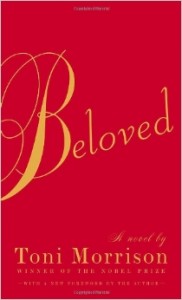 In advance of a Virginia state Board of Education meeting tonight where members will consider requiring schools to warn parents about educational materials containing “sexually explicit” content, CBLDF this week signed on to a National Coalition Against Censorship letter rebutting some arguments advanced in favor of the regulation.
In advance of a Virginia state Board of Education meeting tonight where members will consider requiring schools to warn parents about educational materials containing “sexually explicit” content, CBLDF this week signed on to a National Coalition Against Censorship letter rebutting some arguments advanced in favor of the regulation.
The current draft regulation is a revived version of a bill that passed through the state’s General Assembly last year but was vetoed by Gov. Terry McAuliffe, who said that it “lack[ed] flexibility and would require the label of ‘sexually explicit’ to apply to an artistic work based on a single scene, without further context.” Censorship proponents, led by the mother of a now college-aged student who was disturbed by the content of Toni Morrison’s Beloved when it was assigned to his AP English class in 2015, are now trying to enact the same rule through administrative means instead of legislation.
The latest NCAC letter, signed by CBLDF and seven other free speech advocacy organizations, responds to arguments that supporters of the regulation presented at recent public hearings. The letter emphasizes that a small group of parents should not presume to know what all parents find objectionable:
Parents have widely divergent views and values. Some parents object to sexual content, others to violence, still others to religious or racial references. For every parent who objects to an assigned book, there will be others who favor it. In practice, the attempt to alter school curricula in response to individual objections means privileging the moral or religious beliefs of some families over others. It is precisely this form of viewpoint discrimination by government that our constitutional system is designed to prevent.
The letter also draws upon legal precedents, including Brown v. EMA which struck down a California law restricting the sale of violent video games to minors. As in that case, NCAC pointed out, the Virginia parents cannot point to any actual harm that has been caused to students:
For the regulation of video games to survive constitutional scrutiny, it would have been necessary to show that there was “an ‘actual problem’ in need of solving,” and that the restriction on speech was “necessary to the solution.”…The video game law failed on both grounds. Similarly, here there is absolutely no evidence of an “actual problem.” There is no suggestion that any student has in fact been harmed by reading Beloved or any other book assigned in school. The proposal is justified solely on the ground that some parents have personal objections to books with sexual content, even if they have educational value.
Check out the full letter embedded below, and watch for updates after tonight’s meeting!
VA Sexual Content 1.19 by betsy.gomez on Scribd
Help support CBLDF’s important First Amendment work in 2017 by visiting the Rewards Zone, making a donation, or becoming a member of CBLDF!
Contributing Editor Maren Williams is a reference librarian who enjoys free speech and rescue dogs.